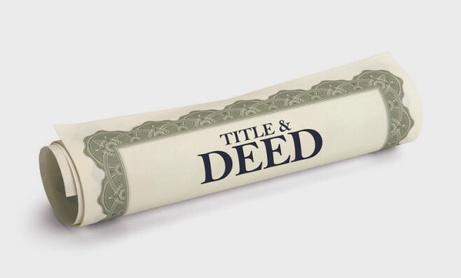




0 1 0 2 0 3 0 4 0 5
MOST IMPORTANT ASPECTS OF TITLE INSURANCE FOR A BUYER
WHAT DOES TITLE INSURANCE COVER? WHAT IS THE RISK?
MOST FREQUENT CLAIM ISSUES
THE COST OF INSURANCE VS A POTENTIAL CLAIM
HOW MUCH DOES IT COST? HOW LONG WILL IT LAST? ARE THERE ALTERNATIVES?
ATTORNEY OPINION LETTERS AND CLOSING PROTECTION LETTERS WHAT IS TITLE INSURANCE?

Title is another way to describe the ownership of real estate. At purchase, title is transferred to the buyer in one of several ways For example, individuals can take title solely in their own name or in the name of an entity, in either case the owner holds 100% of the property. If more than one person or entity is purchasing the property, the most common options to take title are either as tenants in common (T/C) or as joint tenants with rights of survivorship (JTWROS)
T/C means that each owner, whether a person or entity, owns a share of the property and can convey that share separately from the other share(s) owner(s) Upon the death of a T/C their share can pass to heirs, beneficiaries or other devisees and, during their life, can convey just their share independently from the other owners.
JTWROS means that each owner owns the whole of the property together with the other They cannot convey their share independently and upon the death of one, the property immediately vests in the other.
These are the most common says to take title to property. Think of it as the description of how you own your property Title insurance protects your ownership interest from the interests of others.


How is “title” insured”
Title insurance is typically obtained at the time of your original purchase of the property. The settlement agent and attorney will have examined the title history and determined its insurability If there are issues that can be “cured”, or fixed, they will be resolved prior to closing so that you will receive a clean owner’s title policy following closing. This policy ensures that no other party can claim an ownership interest in the property.
Many settlement agents will need to obtain premium quotes from several insurance companies in order to provide the appropriate and best policy for their customer. Signature Escrow & Title does business only with Chicago Title Insurance Company, an insurer wholly owned by our parent company, Fidelity National Financial. This allows is to be more proactive and efficient with our services.
We should mention that if you are borrowing money for your purchase your lender will likely require a lender’s title policy as well. This policy will insure the lender’s interest in the property, i.e. the amount of your borrowing. That interest is as a mortgagee with the right to claim ownership in the event of a foreclosure.


What does title insurance cover?
Title insurance is exactly what it sounds like. It provides protection against third parties attempting to claim ownership The policy will insure that your ownership of the property is clean and unencumbered, except for those things of which you are aware. Two examples of acceptable encumbrances are: (i) your mortgage; and (ii) an easement that the city may have over a portion of your property to provide utilities to service your home
Once you are under agreement to purchase property the the title/closing company will offer title insurance to you and during the closing process will search property records to determine whether title is “clean”. The search will reveal all encumbrances or other potential title issues. Some may be acceptable, i.e. a prior mortgage that will be discharged at closing - and some may be unacceptable, i.e. a tax lien or other judgment that impacts the transfer of property. The title company will then determine whether those encumbrances must be removed and if so will do so. If they can’t be removed your insurance may be limited and exclude that specific encumbrance.

What is the risk?
Simply put the risk of not purchasing a title policy is equivalent to losing the value of your investment. If title ownership of your property is disputed, without title insurance you will bear all costs incurred to defend your ownership
Consider this example. You originally purchased your home from the estate of the prior owner. A fiduciary deed is a deed conveying property by an estate of a deceased owner Your fiduciary deed was signed by all of the prior owner’s heirs - or those who were thought to be all of the heirs Imagine someone coming to your door a year later and stating that they are a previously unknown heir of the prior owner. Without a title search confirming who the heirs were and ensuring that all of them were found and signed the deed conveying ownership to you, your claim to title will be compromised. Curing this situation can be very costly as you can imagine. Having title insurance would remove this risk from you


How much does it cost?
The cost of title insurance varies from state to state and between title insurers. An owner’s policy premium is usually a percentage of the purchase price. Similarly, a lender’s title policy premium will be based on the amount borrowed rather than the purchase price. Again, the specific percentages will vary so it is best to contact your title company for an exact quote.
You can head to our website here: Signature Escrow & Title to request a quote and use the calculator resource to estimate the cost.
It is important to note that the premium is a one-time fee.

How long will it last?
The policy will provide protection for the duration of your ownership of the property. You will never have to purchase another policy or pay an additional premium.
Everything in life has alternatives and title insurance is no exception. The primary alternative is to obtain an “Attorney Title Opinion Letter” (“AOL”). This is a letter written by your attorney that opines to the status of title to property. The letter typically includes a chain of title identifying all prior owners of record covering a stated time period, as well as an explanation of any encumbrances or liens of record
Relying on an AOL provides only limited protection since in the event of an error, the coverage will be limited to the attorney’s errors and omissions insurance and/or malpractice insurance. Any claim against the attorney may require a lawsuit alleging negligence. This is a standard that can often be very subjective and a costly endeavor.
A title policy will not require proof of negligence and is totally supported by the third-party title insurer.

